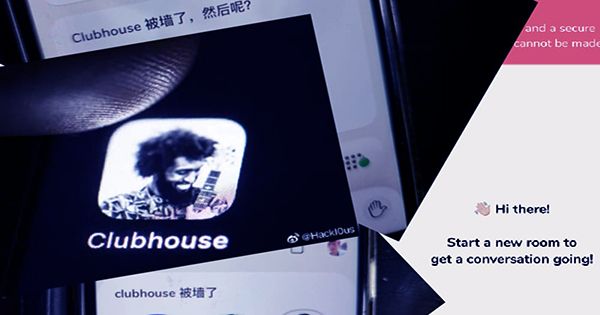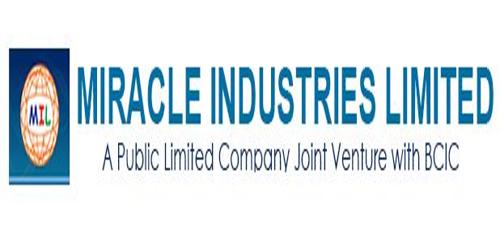Bangladesh is one of the most vulnerable countries for HIV in South Asia region due to its geographical location and high risk behavior among the people. Most of the common reasons of HIV/AIDS transmission are available in Bangladesh.
The project on “Expanding HIV/AIDS Prevention in Bangladesh” is a collaborative project between National AIDS/STD Program (NASP), Ministry of Health and Family Welfare (MOH&FW) and Save the Children funded by Global fund to fight AIDS, Tuberculosis and Malaria (GFATM). SKUS has been implementing one of the technical packages GF-907 “To reduce harm reduction through the Injecting Drug Users (IDUs)”
This report documents are compiled for the period of July 2011 to March 2013 on Expanding Provision of Essential Harm Reduction Services for IDUs, GF-907,
Main activities of the project focus on STI and abscess management, counseling with targeted people, one to one session and group session in DIC and out DIC, group meeting in DIC and out DIC, syringe and needle exchange, condom promotion, detoxification, voluntary counseling and testing (VCT), IEC/BCC materials distribution etc for reduce harm reduction among the injecting drug users (IDUs).
Goal of the Package is to limit the spread and impact of HIV in the country through preventing HIV/AIDS/STIs and reducing risks among the Injecting Drug Users.
Main Objectives of the project are to increase coverage; quality and comprehensiveness of intervention of IDUs relating to HIV in Bangladesh also increase coverage, quality and quality of HIV prevention interventions and built capacity of GO/NGO and self-help group at national and district levels to scale up standardized, high quality interventions and to improve coordination.
As per RCC work plan in SKUS has given a the target to reach 950 IDUs through 7 (seven DICs), in reporting period SKUS reached 967 Injecting Drug Users through operating 7 DICs where target was set to reach 950 injecting drug users. In this period (Dec’12 to March ’13) SKUS included 22 more new IDUs in the HR services. This number will be included in mother list accordingly in the following quarter.
SKUS have refurbish DICs established under GFATM round 6 with necessary equipments and materials which were damaged and out of work for long time use. In P-10 SKUS have refurbished 2 old DIC located at Monsurand (Songi-13) and Bakolia (Songi-63).
As per agreement and with the guidance of Save the Children, SKUS has established 5 new drop in centers in the respective areas of Cox’s bazaar, Narshindi and Dhaka district. Based on previous mapping DICs have establishes in Narshindi sadar, Syampur and Jatrabari of Dhaka, Cox’s bazaar sadar and Teknaf of Cox’s bazar districts.
All central and DIC based staffs were recruited following HR policy of the organization. Currently around 78 staffs are working with the project among them 73 are at DIC level 3 at central level and these are new position under current agreement. On the other hand chairman of SKUS worked as focal person as shared staff.
During the period SKUS implement DIC Year: 2 (July’11 to December ’11) only two DIC and Year: 3 (January ’12 to March ’13) Total seven DIC. SKUS has implemented different activities. On an average 1000 IDUs (year: 2, 260 & year: 3,950) have uses drug through injection on SKUS working area and we have planned to reach the entire participant and we have already covered 956. Year: 2 (July’11 to December ’11) Only Two DIC and Year: 3 (January ’12 to March ’13) Seven DIC operate. Maximum Injecting drug users are sharing syringe and needle with other Injecting drug users. We are trying to change risk behaviors to IDUs. After counseling to the users we distribute syringe to them so that they can use one syringe separately to avoid HIV and other harm reduction. Up to this reporting period target were Total 589016 syringes and needle distribution among the injecting drug users for 7 DICs but SKUS achieved Total 195939 syringes and needles..
Achievement of needle syringe distribution is depends of demand of the Injecting Drug Users. SKUS collected this exchange rate is almost 80%. We also distribute (27G) needle to the user who cannot use normal syringe.
On the other hand IDUs and sex workers are most vulnerable group for HIV and STIs so without using and protection if they use sex, they can affect by HIV and others STIs and most of them have no accurate knowledge to using condom. During the reporting period SKUS has distributed Total 59756 numbers of condom.
We conduct one to one session and group session at DIC and IDUs spot. We have already achieved Total: 68211 one to one sessions by outreach and at DIC which cover the same participants. On the other hand outreach workers also achieve Total: 12637 participants through group sessions.
Community advocacy meeting is also one of the major activities of this project GF-907. In this period we have successfully complete this meeting with community leaders, retired officers, young people, students, house makers, unemployed people, IDUs etc, In this meeting participated Total : 1719 community people.
One of the major activities of DIC’s is STI and Abscess management. In DIC we have already treatment Total: 319 STI patients and Total: 398 of Abscess patient. On the other hand we have already treatment Total: 1101 general patents.
Counseling is essential for STI/abscess patient for treatment, VCT, detoxification, refereeing at general hospital or urban primary health care centre. Basically this session conduct at DIC by DIC manager and MA for reduce their risk behavior, negative impact of over dozes, Patient selection for general treatment, VCT, Detoxification and referring of GeneralHospital and Urban Primary Health Care Centre. On emergency case MA visit IDUs home for counseling with their family.
After counseling with IDUs we refer them at ARK and Jagori , Madhumita centre (SMC)for detoxification and Voluntary Counseling Testing(VCT). DIC Manager and Medical Assistant are counseling with the patient for HIV test and detoxification at DIC. After counseling with the IDUs, if they want to free from drug, DIC refer them at ARK for detoxification, on the other hand if they have any possibility for HIV positive, DIC refer them to Jagori& Ashar Alo Society, Madhumita centre (SMC) for VCT. We have already referred Total 127 patients for VCT at Ashar Alo, Madhumita centre (SMC) and Total 110 patients at ARK for detoxification. After detoxification of IDUs, DIC manager and MA frequently visit them for solving any problem. Peer outreach worker training also activities of this project. Program officer GF-907 package, MTs and DIC managers and MAs were conducting and facilitate by this peer volunteer training. Total 130 new and old PE get training during the reporting period.
On other hand SKUS conducted medical assistant refreshers training (20+26) Total 46 MAs from different SRs, Master Trainers training with 20 MTs from different SRs, Refresher training Total 27 outreach supervisors.
Earlier of the reporting year SKUS was the member of Consortium, the Consortium package was implemented by the Padakhep Consortium consists of seven National and local NGOs like Padakhep Manabik Unnayan Kendra, Khulna Mukti Seba Sangstha (KMSS), Social Advancement Society (SAS), Samaj Kalyan O Unnayan Shangstha (SKUS), Trinamool Unnayan Sangstha (TUS), Dhrubo Society (DS), SWADESH and one self help group ARK.
As per management (GFATM) decision that Save the Children (SC) issued termination letter to GF-907 Consortium. So, as a part of transition plan SC selected SKUS as a potential organization for implementer after capacity assessment. Assessment period was October 13-19, 2011 and based on the recommendations of assessment report SC undergone direct grant agreements with seven SRs (Khulna Mukti Seba Sangstha-KMSS, Social Advancement Society-SAS, Samaj Kalyan O Unnayan Shangstha-SKUS, Social Work for Awareness Development Environment and Social Health-SWADESH, Trinamool Unnayan Sangstha-TUS, Dhrubo Society-DS and ARK) for the period October 28, 2011 to March 31, 2013.
Drug use is an alarming problem in Bangladesh. An estimated 1.7 million people are drug users in the country among them 20000 to 40000 are injecting drug users (In 2004). Considering that situation and approved activities by the grants
SKUS has been working in 2 divisions of Bangladesh- Dhaka, Chittagong through 07 Drop-In-Centers (DICs) in 04 districts. Harm reduction approach is followed to combat spread of HIV/AIDS among drug users. It is concerned with reducing the harmful implication of drug use, such as STI and HIV transmission, abscess, marginalization, harassment and detoxification and rehabilitation.
Main Objectives of the project are providing services to 950 injecting drug users through 07 DIC’s following standardized guideline and protocol to increase coverage; quality and comprehensiveness of intervention of IDUs relating to HIV in Bangladesh. To develop the capacity of Project staffs to provide harm reduction services at DIC among targeted IDUs, to provide drug treatment, long term rehabilitation and vocational training. Create an enabling environment at community and local levels for running effective harm reduction interventions; to Develop and distribute the BCC materials for increase knowledge and change behavior of the IDUs;
GF-907 package is providing services to injecting drug users considering the two following strategies:-
Harm Reduction Strategy – Harm reduction is a pragmatic and humanistic approach to diminishing the individual and social harms associated with drug use, especially the risk of HIV infection. This approach is based on the pragmatic acknowledgement that, despite years of trying, there are no known effective interventions for eliminating drug use or drug-related problems in any community, city, or country. Harm reduction strategies followed during the project period to prevent HIV.
Public health strategy- A public health strategy that promotes behavior change through comprehensive HIV prevention and care programs for injection drug users for essential to HIV programming was followed.
A number of achievements have made during this period. As part of the harm reduction program, we provided Total 195939 new syringes/needle, Total 59756 condoms for safer sex practices. During this reporting period there were Total 68211 one to one education sessions, group education sessions conducted Total 12637 participants, Total 319 STI cases managed for IDUs,Total 398 abscess cases managed, Total 1101 times general health care support.
Service Coverage and Approach
Some essential services are providing to IDUs- like clinical services, counseling, group education sessions to IDUs at DIC .
In the reporting period, Total 319 STI cases managed. The qualified and trained Medical Assistant provided STI services to project participants (Injecting drug users). Medical Assistant prescribed medicines according to the National STI management guideline. The drug users collected medicines from DICs. Medical Assistant followed them about their clinical improvement. The STI services were given according to need. Medicines procured at centrally by the PR and sent to DICs as per demand.
During this reporting period Total 1101 general health problem of IDUs were addressed and provided proper treatment. The general health problem includes body ache, headache, cold-fiver, boating, discentry, acidity, injury, skin rash, etc. This service is very much demanded from project participants. Due to low resource under this line item it will not possible to provide service this huge number of demand.
Abscess is another health problem for Injecting drug users. There were Total 398 abscess cases managed during the periods. It also depends on the need and demand of the project participants. Outreach workers identified the abscess cases at outreach then sent to DIC for case management. It was also observed that the IDUs also come to directly DIC for treating the abscess cases. Medical assistant assess the abscess cases and provide necessary treatment including drainage, dressing and medication. In case of complicated abscess cases medical assistant refer the cases to appropriate referral centers in the working areas and follow up the cases accordingly.
Outreach based services:
There was Total 68211 one to one education sessions conducted in this reporting period among target population mainly by the outreach workers. One to one session were mainly conducted by Outreach Workers to injecting drug users to provide information on nine specific pre-selected message including drugs and their effects outlining potential hazards, safer drug use, safer sex, abscess, cocktail how they can be off from drug, and information about cause, transmission and non-transmission of HIV/AIDS, as a means to reduce risk practices relating to HIV/STI transmission by using different IEC / BCC materials. Consortium also introduced session tracking mechanism for tracking the individuals and session by session code number.
Group sessions were given at DIC by the DIC team and in the outreach by outreach workers as well as DIC staffs. Total 12637 participants received group education on different issues related to drug and HIV in this reporting period. The objectives of group sessions were to provide the information about drug use & its hazards, consequences such as relationship between drugs and HIV and to promote the awareness of HIV/AIDS/STI and safer sex practices. Awareness sessions were conducted using flash card, BCC materials & flip chart.
Total 195939 pcs. Syringes/ needle were distributed to the injecting drug users through outreach workers with a view to stop sharing and collected the used one on the next available day. The Syringe Needle distributed to injecting drug users according to their demand and drug use pattern.
Total 59756 pcs condom distributed among IDUs. The distribution of condoms depends on demand from the target populations. The outreach workers were distributing condoms to the IDUs based on their need. The DIC staffs also used it for demonstration purposes at DIC and at Outreach during health education
Human Resource development through training
As part of this capacity building, a variety of program operation and skill development training for the program staff has been designed. As per work plan the provision of the Refresher training for Master Trainers and Refresher training for outreach workers, etc
Capacity Building initiatives for Master Trainers: 07 DIC Managers were received refresher TOT on Mater Trainer. During conduction of training it was considered that DIC Managers should have this training as they provide peer educators training in the DIC level. The objectives were to provide knowledge, develop capacity and practices on HIV/AIDS, Drug use and Treatment of IDUs and able to explain, Develop knowledge and skill on HIV/AIDS, STI/STD management and Harm Reduction Program intervention for IDUs, Enhance monitoring knowledge and skill and ensure the quality of the field work, Provide conceptual clarity on VCT, TB-HIV,STI, abases and overdose management, detoxification, referral services, DIC management, advocacy and communication / BCC, Develop and enhance positive attitude towards the target population, Improve monitoring and reporting skills.
Refresher training on STI syndromic management for Medical Assistants
In order to provide quality services, development of DIC based staff through various capacity building initiatives are necessary. STI syndromic management refreshers Training for medical assistants is strategically a very important event for Medical service providers at the DIC based implementers who are provided preventive, curative services as well as the referral services at nearest referral centers of the People Who Inject Drugs (PWID) under GFATM Project.
As part of the capacity building initiatives for Medical Assistant of all SR working under GF-907 of SCI, SKUS have organized and conducted 3 days long refresher training for MAs with the technical support form Save the Children at Dhaka. Target were to reach 25 MAs with the training but SKUS manage to reach 26 participants within the given budget, Training was held from 22-24 September, 2012
Refreshers for Medical Assistant (MA)-cum-Counselors
In order to provide quality services, development of DIC based staff through various capacity building initiatives are necessary. STI syndromic management refreshers Training for medical assistant cum counselor is strategically a very important event for Medical service providers at the DIC based implementers who are provided preventive, curative services as well as the referral services at nearest referral centers of the People Who Inject Drugs (PWID) under GFATM Project.
As part of the capacity building initiatives for Medical Assistant of all SR working under GF-907 of SCI, SKUS have organized and conducted 3 days long refresher training for MAs with the technical support form Save the Children at Dhaka. Target were to reach 20 MAs with the training but SKUS manage to reach 20 participants within the given budget, Training was held from 17-19 June, 2012
Refreshers for Outreach Supervisors (OSs)
In work plan this target was given for SKUS but budget was allocated to Save the Children. SKUS with the technical support form Save the Children have organized and conducted 2 days refresher training for Outreach Supervisors at Dhaka. Targets were to reach 29 OSs with the training but SKUS manage to reach 27 participants
Refresher training for Outreach Worker
Outreach workers are the back bone of an outreach service 60 outreach workers received refresher training on essential harm reduction services for injecting drug users.The objectives for conduction of outreach workers training were – enhance knowledge and practise of the outreach worker for program implementation, Assess and review knowledge skill on HIV/AIDS, STI/STD management and Harm reduction, Identify the knowledge gap from starting to existing, BCC and Communication skill develop, Conduct one to and group session, Improve operation of the outreach activities, Develop positive attitude towards IDUs. Refreshers training for outreach workers were organized at DIC level in time to time.
Peer gathering
In P11 SKUS have plan to organize a Peer Gather with 125 participants who are working as OWs/PE at DIC level. But due to some critical and unavoidable reasons like time to organize the event, DIC visit at cox’s bazaar by SCI senior staffs and other activities to complete as well as unavailability of management staffs of SKUS, we did not manage to organize the event in P11.
Referral and linkages
VCT: During the reporting period Total 107 IDUs were referred for VCT services at Jagori, Ashar Alo Society & Modhumita Centre. The VCT referral confirmed and ensured through functional referral. A standard procedure is maintaining for ensuring the quality of VCT referral services. GF-907 is following the accompanying referral mechanism for VCT referral services. During any VCT referral one of the DIC staff were responsible for ensure the VCT receive, cycle completion, etc.
F. Advocacy, Community meeting and group creation
The overall objective of the Advocacy activity is to create enabling environment, develop understanding, support and commitment of the policy makers, Officials of different key Ministries, Law enforcing agencies and other stakeholders for ensuring Essential Harm Reduction Services for Injecting Drug Users. Advocacy was organized in different level according to project design.
District level advocacy: The objectives of district level advocacy are to create enabling environment at community level, share GFATM Project overview, share overview of Package # 907, share Global and National situation of HIV/AIDS and IDUs, Role of the participants for program implementation, Reduce harassment by the police and others. There were 2 districts level advocacy were organized during the reporting period Y-3 and total 68 participants from representative of government authority, Public representative, Civil society representative, local elite, drug users family members, NGO representative, journalist were attended.
Advocacy at community level: Community advocacy is a community engagement initiative with the program. Through this activity community are regularly update about the program activity. Through this way community support are ensuring with program. Total 1719 participants attended in the community level advocacy. The community level meetings were arranged in important localities under DICs where some sensitizations need felt by DIC staffs. It also organized for reducing harassment among the target population and increase local support for implementing the harm reduction activities.
Meetings for creating an enabling environment with DIC management/Advisory Committee:
As per work plan, the target was to arrange meeting with Total 821 participants of DIC advisory committee members for 7 DIC where as the achievements were Total 448 participants attended in 7 DIC advisory committee meetings.
In P10 SKUS have operated 2 DIC for April, May and June, other 5 DICs have started operating end of the May 2012. Due to these reasons achievements is less in compare to targets. On the other hand cumulative achievement is less in compare to total targets up to P10 as because SKUS have operated only 2 DICs due to hand over problem with Padakhep from November 2011 to March 2012.
Observing WAD / Drug Prevention Day along with Self-help groups (SHG) / Community based organization (CBO)
This event have completed, SKUS have observed of Drug Prevention Day along with Self-help groups (SHG) / Community based organization (CBO), SKUS have take part with national program and well as have organized local level meeting and discussion at DIC. Some DIC have established information booth and organize quiz competition. A total 156 participants have took part in those program where as target were to reach 160 participants
In December 2011 & 2012 SKUS attended national program for observe world AIDS day2011 at Chittagong with a total of 25 participants in 2011 and 47 participants participated in 2012,
According to capacity assessment findings by PR that some needs for technical supports to the SRs for timely implementation of project activities and strengthen their systems for optimum compliance.SC provided following capacity building initiatives to the contracted PRs. In this initiatives SKUS actively participated
a) Workshop on the Project, GF Policies & Compliance Issues with the Partners: The workshop organizes and conducted by SC which was held on December 07, 2011 at top floor conference room SC Gulshan-2 office. The major purpose of the workshop was to orient SRs on polices & compliance related to the new grant agreement and to enhance understanding on program and financial management, monitoring and reporting system. A total 02 participant attended the workshop including the Executive Directors, Program and Finance focal points from SKUS.
b) Installation of Logistic Management Information System (LMIS) software: As a part of installation of LMIS among SRs, there was a workshop on “Logistic Management Information System (LMIS)” on December 20, 2011. The LMIS focal of SKUS were participated in the workshop.
c) Workshop on M&E, Documentation and Record Keeping: HIV/AIDS Sector, Save the Children organized a workshop on “M&E, Documentation and Record Keeping” with the partners under package 907 in December 28-29, 2011. The purpose of the workshop was to generate clarity/common understanding on GFATM M&E Systems, Record keeping and Reporting Requirements of GF-907. Program and M&E Coordinator’ and Program Officer of SKUS were participated in the workshop.
d) Workshop on Financial Management: A workshop on Financial Management has been conducted from January 18-19, 2012 for the new partners of HIV/AIDS program under Package 907. The workshop was designed to help newly selected partners under Package 907, It was also designed to let SRs to know about the weaknesses that were found during recent financial monitoring visit and accordingly help those taking corrective measures to avoid any repetition of the similar weakness in future. Program focal persons were called to attend the training that helped them to understand how expenditure is interrelated with the achievement of targets. 02 participants of SKUS were attended the workshop.
Challenges Faced
Challenges | Strategies or Action Taken |
| SKUS take initiatives to continue outreach workers by creating back up peer educator for each DIC areas.
|
Major Lessons Learned:
During this reporting period the SKUS considered following as lessons learned-
- Detoxification can be an effective way to get community acceptance and acknowledgement for harm reduction program which need to be continue.
- Community mobilization meeting and presence of DAC committee can be effective tools for creating enabling working environment in DIC as well as community level.
- Peer volunteer training is effective for
behavior change program
- Oral drug substitute need to be expanded
Way forward
“The truth is that treatment for drug dependency can work, and can restore value and dignity to a person’s life.
Conclusion
Different types of capacity building initiatives have also been taken for staffs. During the reporting period Total 195939 syringe needle and Total 59756 condoms were distributed among the project participants, Total 68211 individual education session conducted on drugs and their effects outlining potential hazards, safer drug use, how they can be off from drugs, HIV transmission and non-transmission and negative consequences of drugs, Total 12637 participants participated in group education sessions. Total 319 STI and Total 398 abscess cases were managed. A total of Total 107 participants received VCT from the selected referral centers.
Need to undertake advocacy with policy makers & law enforcing agencies on harm reduction & drug substitution program. Strengthen the functioning of self-help group of the current and ex-drug users may add value of the program. Partnership with these groups may be sustainable option of the program. Strengthening awareness & sensitization through cultural activities relating to drugs and HIV can be under taken. Strengthen follow-up for detoxed client and rehabilitation program with GO/NGOs, CBOS & community,














